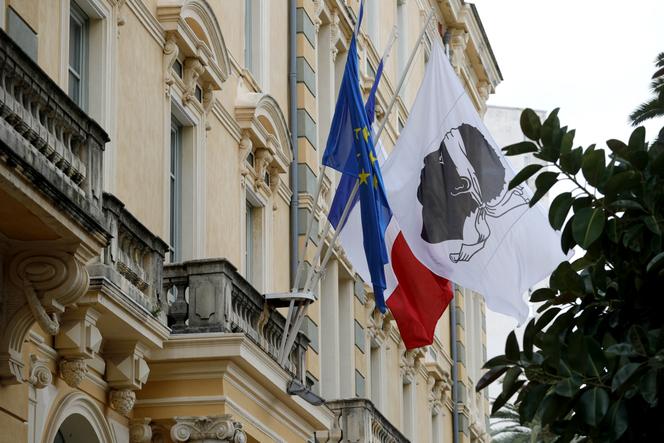


French Interior Minister Gérald Darmanin on Monday, March 11 announced that the government and Corsica's elected representatives had reached an agreement on a draft constitutional text providing for the "recognition of an autonomous status" for the island "within the Republic." The text will now be forwarded to the Corsican Assembly for a vote, the Interior Ministry told reporters at the end of a nearly five-hour meeting at the ministry.
The draft text "respects both the red lines set by the president of the Republic and myself," said Darmanin "and also the time frame set" by Emmanuel Macron, a six-month period set to end in March.
The minister and the island's elected representatives who attended the meeting reached unanimous agreement on the first paragraph of this text. It reads: "The present constitutional writing provides for the recognition of a status of autonomy for Corsica within the Republic, which takes into account its own interests linked to its Mediterranean insularity, to its historical, linguistic and cultural community which has developed a singular link to its land."
Government and elected representatives also agreed that "laws and regulations can be adapted" on the island, added Darmanin. To this end, an organic law will complete the constitutional text to "specify the areas in which Corsica will be able to set normative rules, whether legislative or regulatory," Darmanin detailed.
Gilles Simeoni, president of the Corsican Executive Council and a supporter of autonomy, felt that a "decisive step" had been taken following the meeting, welcoming the fact that "the principle of a legislative power, subject to control by the Constitutional Council, has now been clearly established."
"I'm still convinced that the granting of legislative power is a problem, but I'm not going to take on the role of executioner of the process," said Jean-Martin Mondoloni, leader of the local opposition to the pro-independence group in the Corsican Assembly, leaving it unclear whether he would support the text in the local chamber.
Corsican senator Jean-Jacques Panunzi (a member of right-wing Les Républicains party, LR), repeated his "fierce opposition to the granting of legislative power" to the community, although others want to "go much further." The president of the French Sénat, Gérard Larcher, and the president of the LR group in the Sénat, Bruno Retailleau, for whom "the law remains and must remain in Parliament," were "also fiercely opposed [to the granting of] legislative power."
Darmanin insisted that the text in no way opened the door to "two categories of citizens." "There is no notion of a [Corsican] people, but of a cultural community," he explained, saying he also ruled out any "resident status" on the island. "We have moved towards autonomy" and "there is no separation of Corsica from the Republic," since there is "no mention of the people, nor of resident status, nor of the co-officiality of the language," summarized Darmanin.
After consulting the Corsican Assembly, "the President of the Republic will initiate the constitutional reform at his convenience," Darmanin went on, pointing out that the text will have to be voted by both houses of Parliament in the same terms, then adopted by a joint session by a three-fifths majority.
Translation of an original article published in French on lemonde.fr; the publisher may only be liable for the French version.
